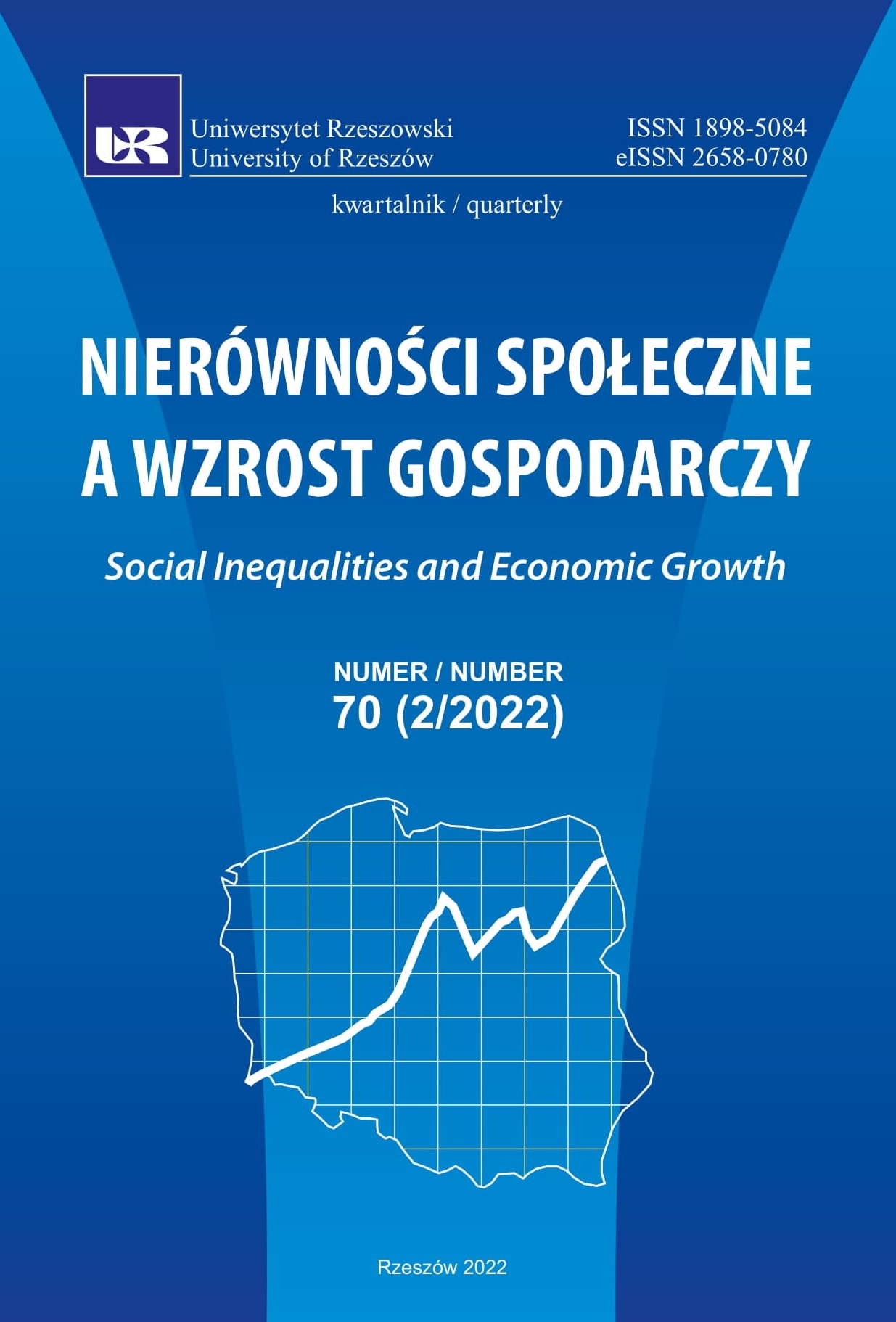The role of economists in modern democracies. “Skin in the game” or an “honest broker”? Between N. Taleb and R. Pielke
DOI:
https://doi.org/10.15584/nsawg.2022.2.1Keywords:
public debate, scientific uncertainty, scientific advisory, social roles of researchers, knowledge management, policy vs politicsAbstract
Economists, and more broadly – scientists who want their work to benefit specific communities or all of humanity – must pay attention to the role they play in public debate. An inadequate approach may result in the instrumental use of science and its politicisation. The article analyses two approaches
regarding the role of the researcher in contemporary public debate. N. Taleb’s concept of a researcher with “skin in the game” and R. Pielke’s approach promoting the model of the so-called “honest broker”. Since these two approaches are partially contradictory, the aim of the article was to highlight
the existing contradictions and to work out a compromise position that can be described as an “honest broker with skin in the game”. A study conducted using content analysis showed that (1) researchers should actively engage in the public popularisation of their works and proactively influence decisionmakers related to their area of expertise, (2) in certain social sciences (characterised by a low level of uncertainty) – the responsibility of the researcher should be higher. It means that its exposure to the risk related to the consequences of false recommendations or bad predictions – should be higher. This issue is important in the context of the effectiveness of researchers’ involvement in policymaking, especially in a controversial area such as income distribution.
Downloads
References
Bijker, W.E., Bal, R., Hendriks, R. (2017). The Role of Scientific Advice in Democracies (Inside Technology). New York: MIT Press.
Brown, M.B. (2008). Review of Roger S. Pielke, Jr., The Honest Broker” Making Sense of Science in Policy and Politics. Minerva, 46, 485–489. DOI: 10.1007/s11024-008-9106-y.
Carey, G.W. (1978). Separation of Powers and the Madisonian Model: A Reply to the Critics. The American Political Science Review, 72(1), 151–164.
Grunwald, A. (2019). Role Concepts of Technology Assessment. Between Postulates of Neutrality and the Demand for Creating Impact. Philosophy and Society, 30(3), 327–342. DOI: 10.2298/FID1903327G.
Pielke, R. JR. (2007). The Honest Broker. Making Sense of Science in Policy and Politics. New York: Cambridge University Press.
Schattschneider, E.E. (1975). The semisovereign people: a realist’s view of democracy in America. Hinsdale: The Dryden Press.
Taleb, N. (2007). Fooled by Randomness. Chicago: Penguin Books.
Taleb, N. (2010). The Black Swan. The Impact of the Highly Improbable. New York: Random House Trade Paperbacks.
Taleb, N. (2012). Antifragile: things that gain from disorder. New York: Random House.
Taleb, N. (2018). Skin in the Game. Hidden Assymetries in Daily Life. New York: Random House.
Downloads
Published
How to Cite
Issue
Section
License
Copyright (c) 2022 University of Rzeszow

This work is licensed under a Creative Commons Attribution-ShareAlike 4.0 International License.


